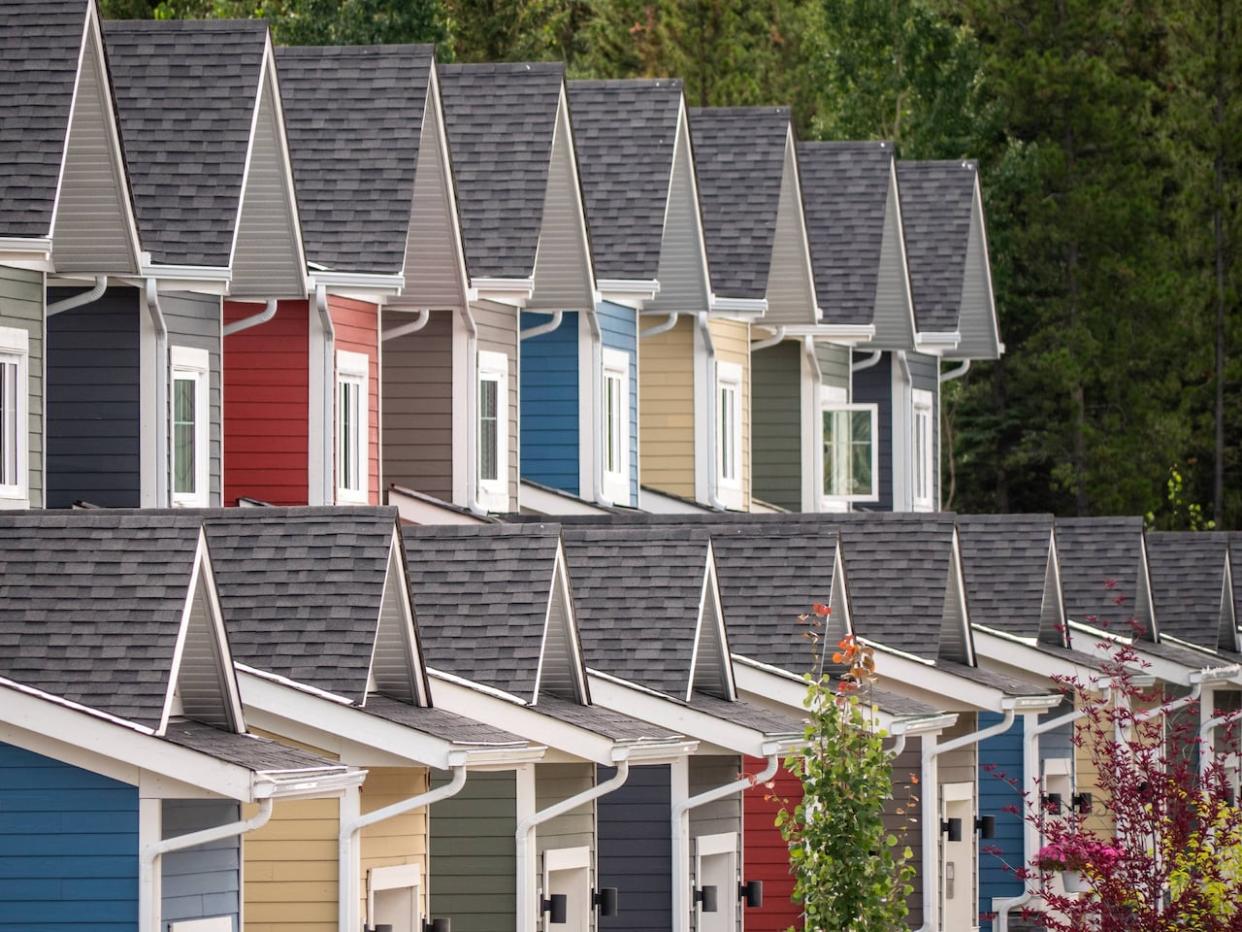105-unit affordable housing project in Whitehorse gets $5M from territory

The Yukon government has announced $5 million in funding for a 105-unit affordable housing project in Whitehorse's Whistle Bend neighbourhood.
According to the government, it is the single largest affordable housing development in the territory's history.
When it eventually opens in 2026, the Winter Crossing housing project will see 75 of its units earmarked for people with low incomes who are part of the territory's Rent-Geared-to-Income program.
As of Jan. 4, that program had 252 people on its wait list, with demand growing by roughly 50 clients each year, according to the government.
Winter Crossing will be owned and operated by the Da Daghay Development Corporation, which is the economic arm of the Ta'an Kwäch'än Council.
It is set to enter the first phase of construction this spring.
One of 2 announcements
The funding announcement was one of two announcements in Whitehorse Wednesday geared toward housing.
The city announced it would also be receiving $11 million from the federal government for housing infrastructure.
It said it would be putting those dollars toward fast-tracking nearly 200 housing units before 2026. The city also plans to use that money to encourage construction of another 3,900 units, by turning some of it into financial incentives for developers.
Whitehorse Mayor Laura Cabott said this is a unique funding agreement.
"It's exciting to hear the federal government talk about housing, because it's not really typically something they get involved in," she said.
The money is also tagged for a long list of projects that will help the city grow sustainably.
Administrative projects include the development of an online permitting process and the ongoing zoning bylaw rewrite. Cabott said both of these will remove barriers to densification.
There will also be a climate change risk policy developed, which will plan for fires and floods. It might include mandatory lawn fire-smarting and seeking out fire-resistant building materials.
"We struggle all the time with fire-smarting … we have huge gaps in the city and we are vulnerable," Cabott said.
The city is also looking at vacant lots and buildings. Cabott said too much residential and commercial real estate is going to waste, particularly downtown.
A potential bylaw or policy is being considered to combat vacancy; Cabott noted that other cities raise property taxes for vacant landowners to encourage development. She said further engagement would happen before any changes.


